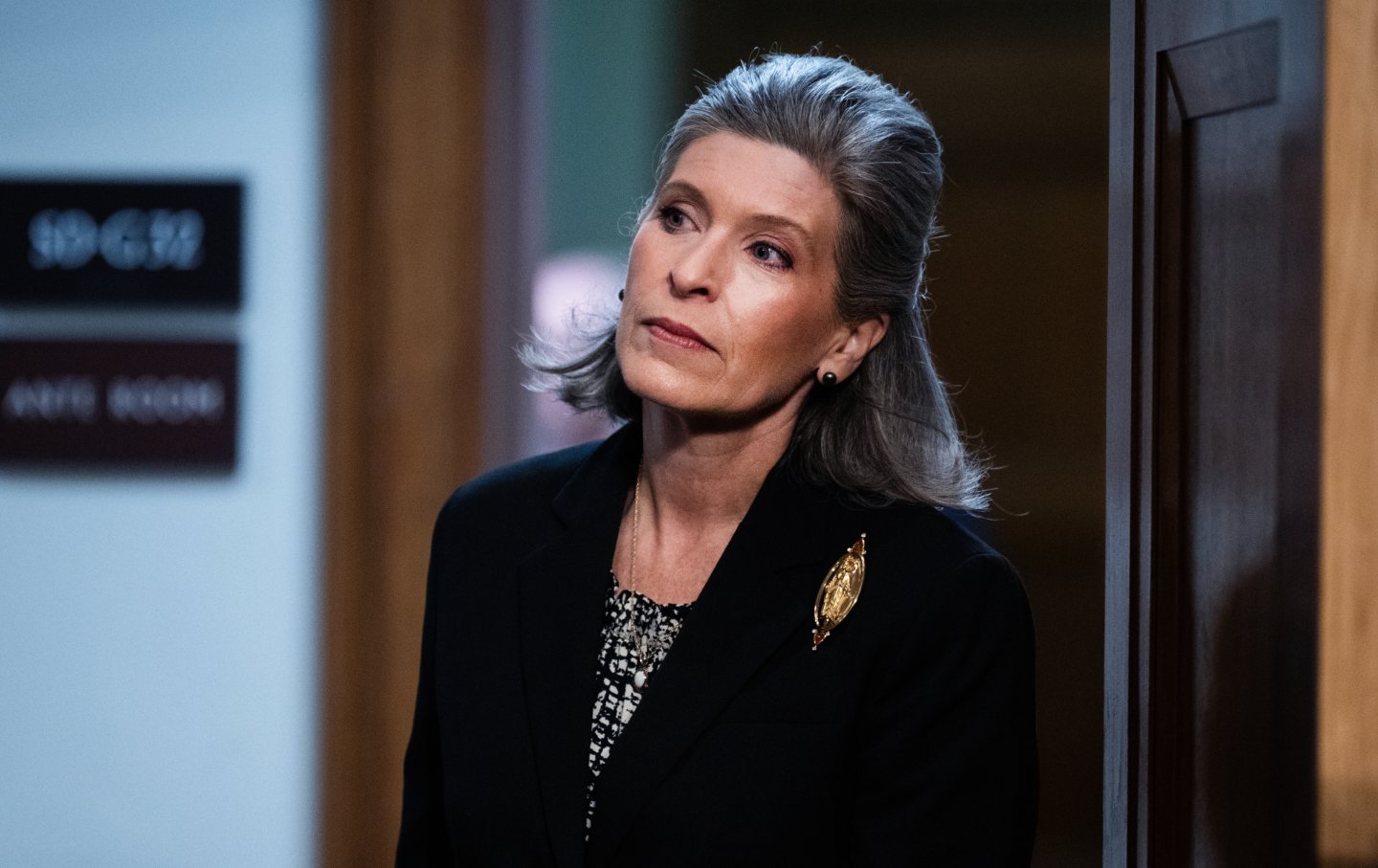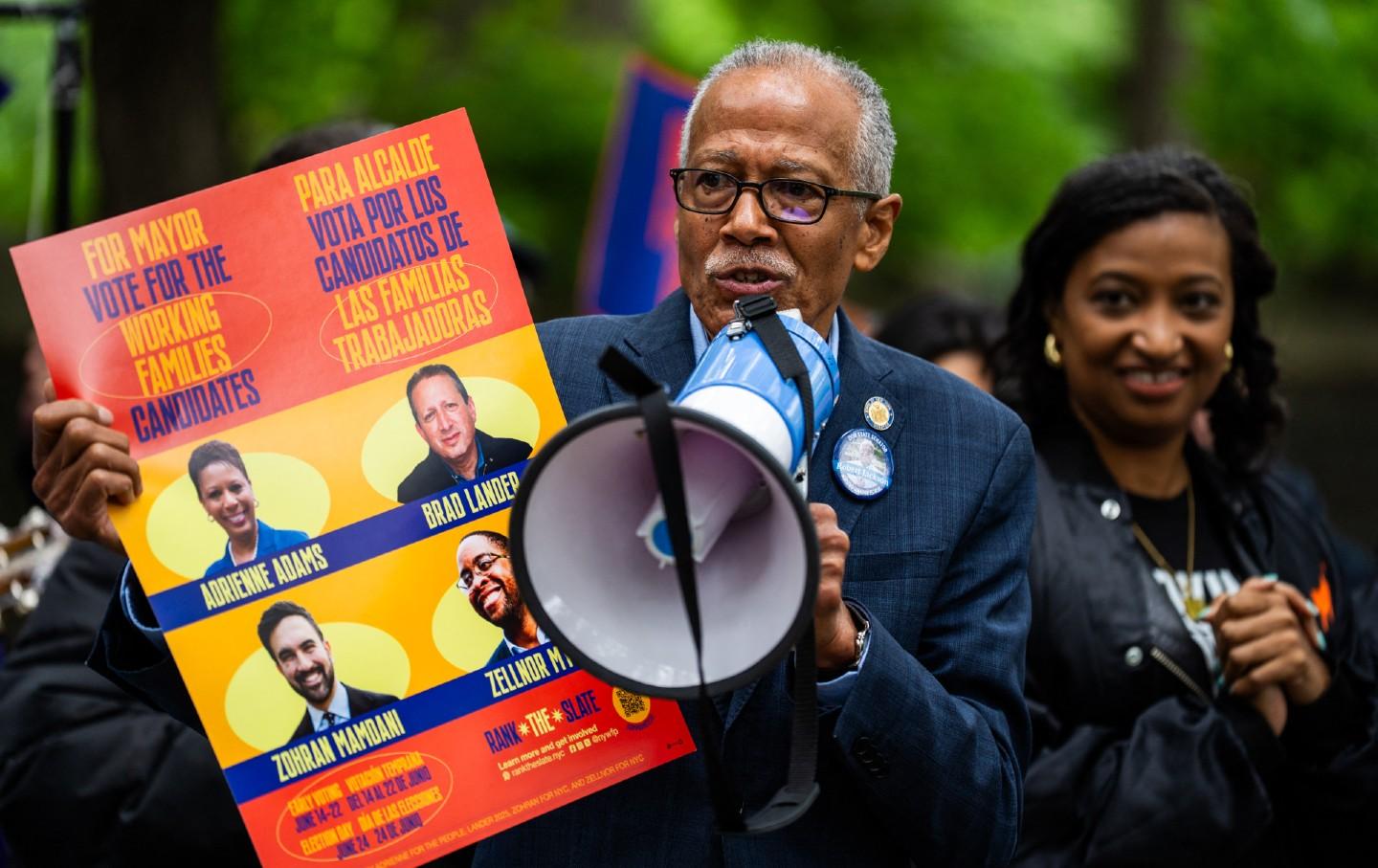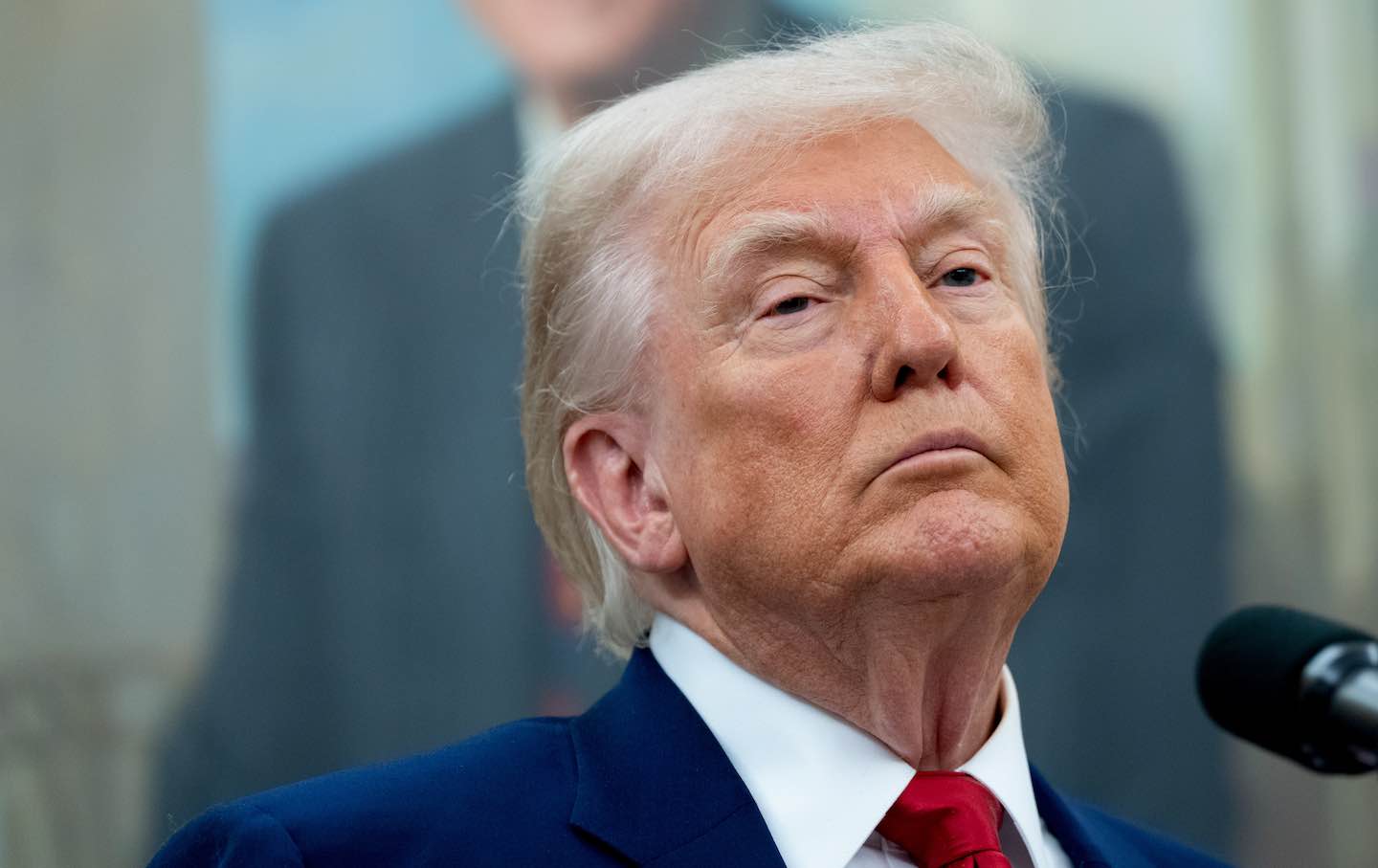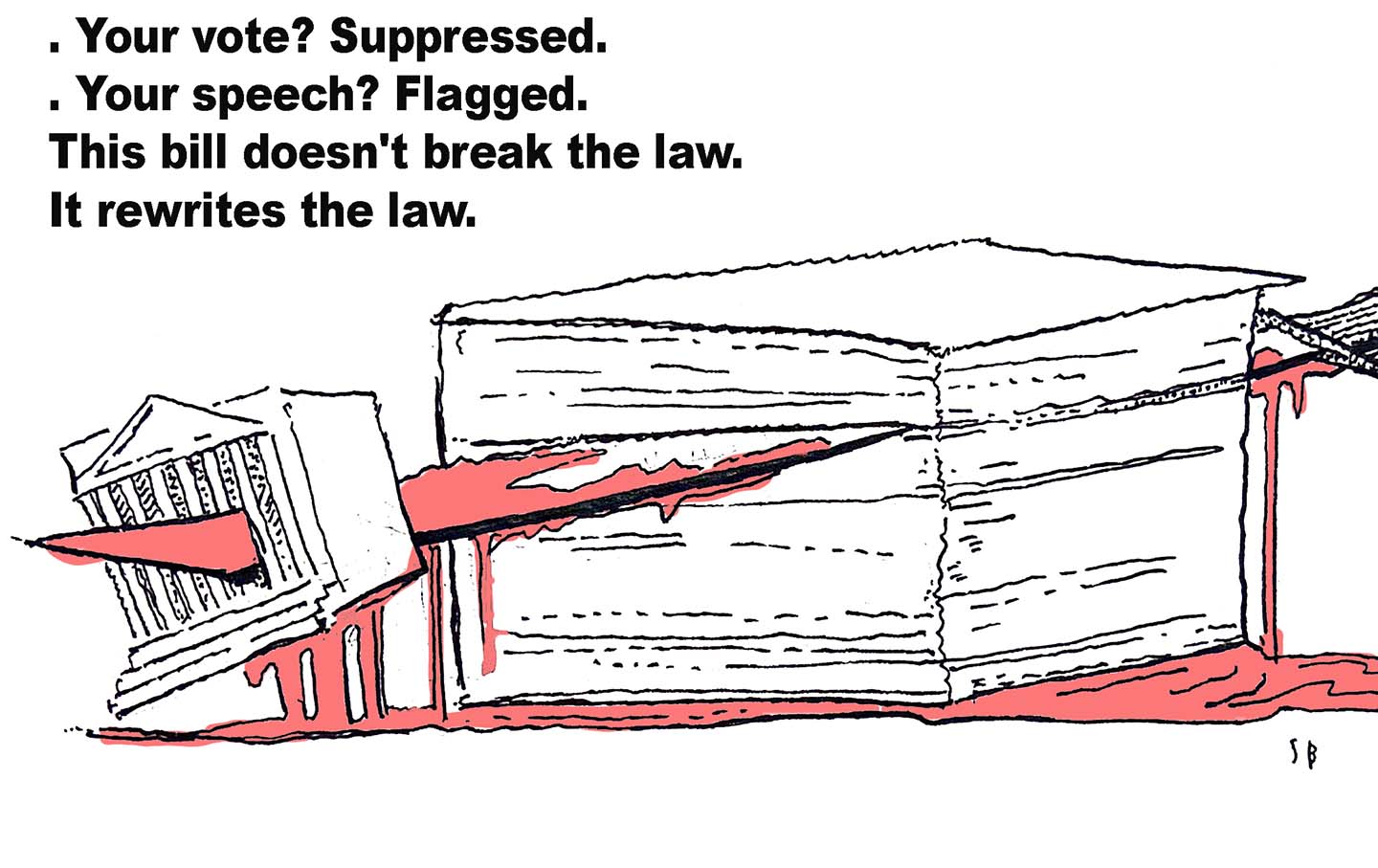The fight might between the president and the conservative old guard might just be the biggest legal development of Trump’s second term.
One of the keys to Donald Trump’s enduring popularity with the worst people this country has to offer is that he often says mean things about the people his supporters hate. Whether Trump does anything to those people, and whether his actions actually solve the problems his supporters have with those people, is often a different matter. But he certainly says nasty things about his enemies, and that is apparently enough to keep his supporters clapping like seals.
Last week, for the first time in my life, I got to experience this aspect of Trump’s appeal. On Truth Social, Trump said mean things about one of my enemies: Leonard Leo. And, truth be told, it was glorious.
The event that seems to have set Trump off was that he lost his tariff case in front of the US Court of International Trade. The next day, the Court of Appeals for the Federal Circuit stayed the decision pending further argument, but Trump was evidently still pissed about it when Susie Wiles told him he’d eaten enough of his dinner to have screen time again. He wrote:
I was new to Washington, and it was suggested that I use The Federalist Society as a recommending source on Judges. I did so, openly and freely, but then realized that they were under the thumb of a real “sleazebag” named Leonard Leo, a bad person who, in his own way, probably hates America, and obviously has his own separate ambitions.
Given Trump’s reliance on Leo and his judges ruling in his favor, Trump’s public denouncement of Leo surprised a lot of people. But not me, and hopefully not you.
As a reminder, Leo and the Federalist Society (which Leo functionally ran until 2023, when 91-year-old industrialist Barre Seid gave him $1.6 billion to do whatever he wants) have controlled judicial nominations by Republican presidents since at least 2005. That’s when the Federalist Society led an uprising against George W. Bush’s second Supreme Court nominee, Harriet Miers, scuttling her confirmation and getting Bush to appoint Samuel Alito instead. Leo and his acolyte White House counsel Don McGahn ran judicial nominations during Trump’s first term and picked most, if not all, of Trump’s judges, including Supreme Court Justices Neil Gorsuch, alleged attempted rapist Brett Kavanaugh, and Amy Coney Barrett.
Everything awful that has been forced on us by the federal judiciary over the past 20 years—from the loss of abortion rights to the evisceration of voting rights to the installation of Trump himself as a king immune from criminal prosecution—has been the direct result of Leo and his influence over judicial nominations (with invaluable assistance from former Senate majority leader Mitch McConnell, of course). Indeed, the few “accomplishments” Trump can claim have been brought to him by his Federalist Society judges.
But regular readers know that there’s been a growing rift between Trump and the Federalist Society since Trump’s reelection. I’ve been tracking it the way storm chasers follow tornados: for “science,” but also for really cheap thrills. So have others. Above the Law’s Joe Patrice noted that Trump’s most recent judicial nominee—Emil Bove, whom he tapped to join the Third Circuit—is a slap in the face to Trump’s FedSoc handlers. Meanwhile, legal commentator and New York congressional candidate Mike Sacks suggested that Trump began to sour on the Federalist Society a while ago—probably back in 2020, when FedSoc judges refused to endorse Trump’s various legal arguments to overturn the election.
That said, Trump is not the only one firing shots in this emerging war. Ian Millhiser has reported on the FedSoc’s growing “ambivalence” toward Trump, which is now regularly on display at its conferences and dinner events.
It’s not hyperbolic to say that the public break between Trump and Leo may be the biggest legal development of Trump’s second term. Think of the Federalist Society like a Taco Bell, endlessly mixing three or four basic ingredients into various tortillas or shells. You can order a “burrito supreme” or a “crunch-wrap burrito” or whatever makes you feel special, but at the end of the day you’re getting the same fundamental foodstuff. It’s quick and it’s standardized, so you can order the “Ninth Circuit Court of Appeals burrito” in California and get basically the same thing as when you order the “US Court of International Trade burrito” in New York. Regardless of the packaging, these judges are made from the same recipe: one-part rejection of the rights of women, Black people, and LGBTQ people; one-part ignorance of the practical realities of the modern world. Now add some bullets, sprinkle on transubstantiated Jesus to taste, and you’ve made a FedSoc judge.
That brings us to the upside of this emerging rift: Trump, or anybody else, can cook up the same judicial recipe, but it’s unlikely that Trump and his team can mass produce Leo’s results.
Without the FedSoc Taco Bell, the pace of Trump’s judicial nominations will slow. Trump made a record number of judicial appointments in his first term (since narrowly outpaced by Biden), and the only way he was able to do that was because Leo and the FedSoc had already done all the hard work of standardizing the process of developing conservative judges. Trump can reinvent the wheel and make a handful of appointments based on the guest logs from Mar-a-Lago, but finding 250 people who can be confirmed by the Senate and will reliably agree with Trump on every one of his legal flights of fancy is not a quick or easy process.
Popular
“swipe left below to view more authors”Swipe →
Perhaps more important, a rift with Leo makes it unlikely Trump will have as many appointment opportunities as he did in his first term. FedSoc judges like getting replaced by other FedSoc judges. If judges considering retirement are uncertain about whom Trump will appoint, they might not retire after all. That’s especially true of important circuit-court judges and Supreme Court justices. I was sure that Sam Alito would retire at some point before the next election to give Trump an opportunity to replace him with someone younger. Now, I’m not as confident. If Alito isn’t convinced Trump will replace him with Alito 2.0, he might hang around just a little while longer. The same goes double for Clarence Thomas, who doesn’t really want to retire anyway.
Lastly, if Trump is in open war with the FedSoc, then FedSoc judges might feel a little more emboldened to strike down some of Trump’s worst executive orders. In addition to the tariff case, Trump has lost lower-court cases involving birthright citizenship and the mass deportation of immigrants, even in front of FedSoc judges. While the Supreme Court may yet have their king’s back, FedSoc judges as a whole have been more resistant than Trump was told they would be, and may continue to frustrate his agenda.
Unfortunately, that is about where the good news ends. Despite my schadenfreude at Leo getting his face eaten by the unhinged leopard he helped release, this is not a situation where the enemy of my enemy is my friend. If Leo is not in charge of judicial nominations in this administration, who is? I will bet all the money in my pocket that the answer to that question is “a racist ghoul,” but not the racist ghoul you’re probably thinking of. Stephen Miller only acts like he’s a lawyer, but he has no formal legal training and doesn’t really understand what judges do or how they do it. I believe the guy who will be de facto responsible for judicial nominations going forward is Mike Davis.
If you’ve heard of Mike Davis, it’s probably because of his viral racist rants about “violent” Black people. Davis is a former clerk for Neil Gorsuch and a former staffer for Charles Grassley, back when Grassley ran the Senate Judiciary Committee. He’s the founder and president of the Article III Project, a group committed to getting conservative judges confirmed that is even more right-wing than the Federalist Society. Davis has been described by The New York Times as a “take-no-prisoners conservative eager to challenge the left with hardball tactics.”
Davis greeted the news of the Trump/Leo fight with glee, saying that Trump “will pick even more bold and fearless judges in his second term.” He also went on Steve Bannon’s show to slam Leo for “sitting on the sidelines” while Trump tried to overturn the 2020 election.
Trump will still appoint plenty of Federalist Society judges. That’s because all conservative judges are also Federalist Society judges; such has been the power of that organization over the past two decades that there is no such thing as a Republican judicial hopeful who isn’t also a member of the Federalist Society. All squares are also rhombuses.
But not all rhombuses are squares. With Davis’s influence, we can expect Trump’s second term to be filled with “FedSoc judges” whose primary loyalty is to Trump, not the Federalist Society. Davis will find judges who will happily vote to let the Republican candidate steal an election the candidate clearly lost. Moreover, I expect Davis will find at least some judges who think that the 22nd Amendment, which limits a president to two terms in office, is just a suggestion, not a requirement. And should a Supreme Court justice retire or die before 2028, you can best believe that their successor will believe in the Great Replacement Theory and think that birthright citizenship must be prohibited by any means necessary.
If there is one abiding maxim about the Trump era, it is this: It can always get worse.
Still, the process for finding and confirming those “somehow-even-worse” judges will be slower and more chaotic. There will be more opportunities to resist and perhaps even defeat some of these Davis picks. And other FedSoc judges might be convinced to hold on to their positions for just a little bit longer.
The best hope here is that Trump, Davis, and whoever else is involved going forward make picks so despicable and unqualified that even Republican Senators get spooked. Either that, or Trump will start auctioning off judicial appointments like he does ambassadorships.
More from The Nation





